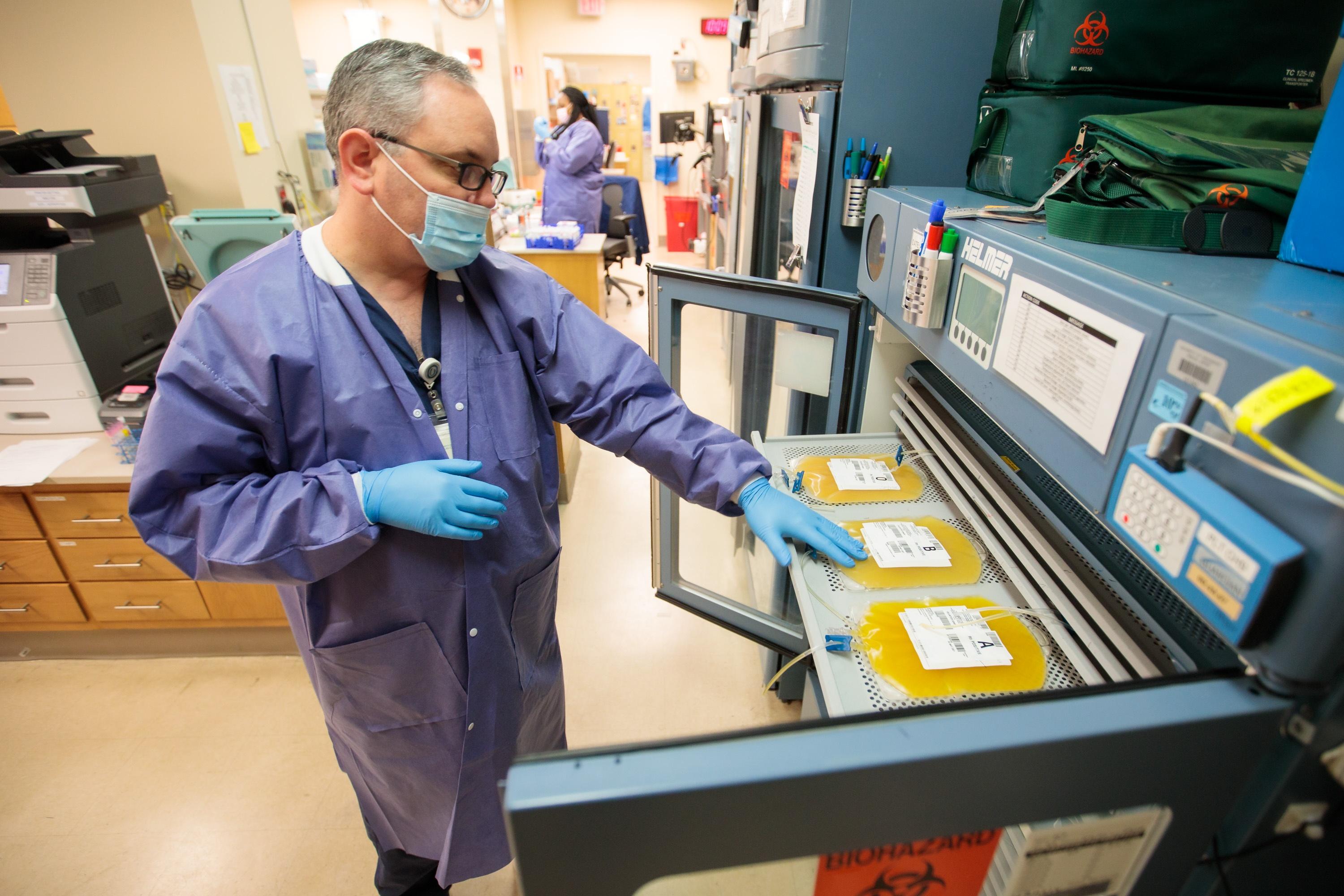Standard blood banking procedure is to store platelets at room temperature. Since the risk of infection is higher when stored at room temp, platelets are only good for up to five days before they expire and have to be thrown out. But what if platelets were also kept in a blood bank refrigerator? Could refrigeration allow platelets to remain on the shelf longer in order to keep up with supply and demand?
Dr. Matt Kutcher, an associate professor of surgery at the University of Mississippi Medical Center, says these questions are the subject of the Cold Stored Platelet Early Intervention for Hemorrhagic Shock trial - or Crisp-HS for short.
"One trauma patient who is critically injured could use upwards of 100 units of blood product and survive, but when we don't have those blood products available you know we would never want to be put in the place to make a decision about stopping trying to save somebody's life because we've run out," said Kutcher.
Another focus of the study is whether cold platelets could be given to patients sooner, as opposed to the standard medical practice of waiting to give room-temperature platelets until later. Kutcher says they're trying to figure out whether using platelets early in injured patients with major bleeding will help stop the bleeding faster.
"In a big kind of rural state like ours, people can spend several hours on the way to the hospital. Even with the fastest helicopter transport," said Kutcher.
" And if you can imagine having internal bleeding, every minute counts."
The trial will enroll more than 200 people aged 15 and older. Patients who qualify will randomly receive either one unit of cold-stored platelets alongside any other blood components they are given for transfusion, or the usual standard of care. The trial begins this Fall.




